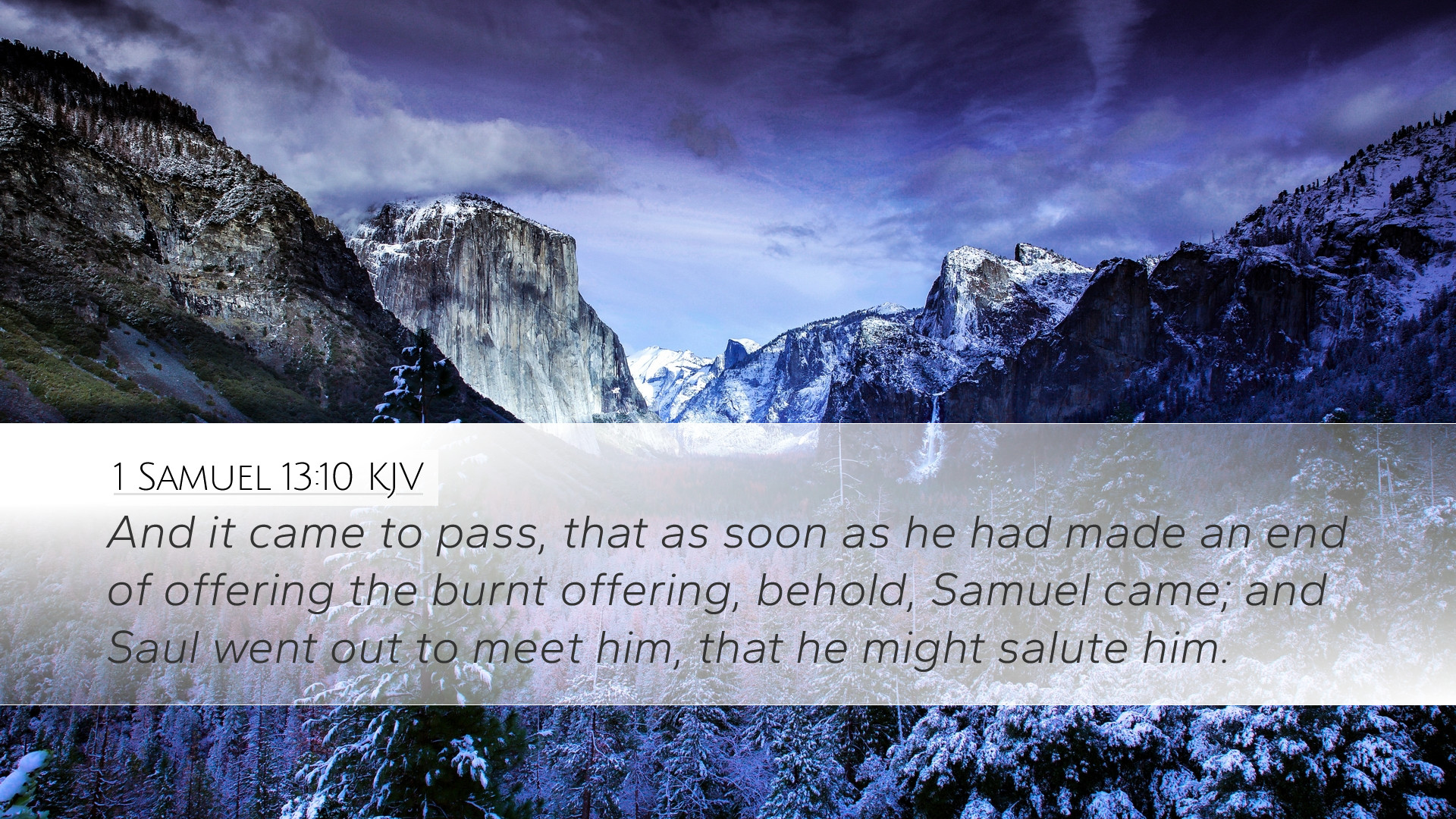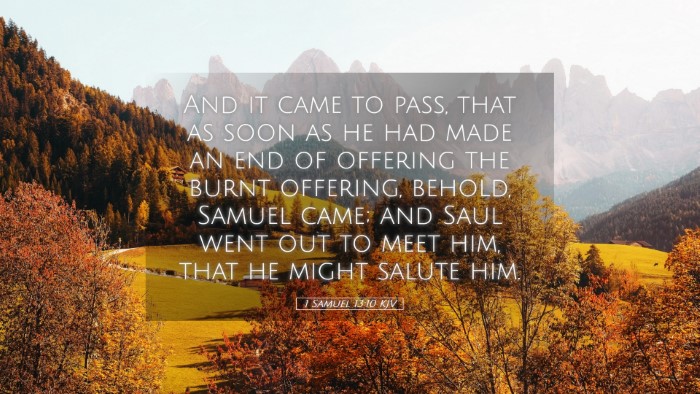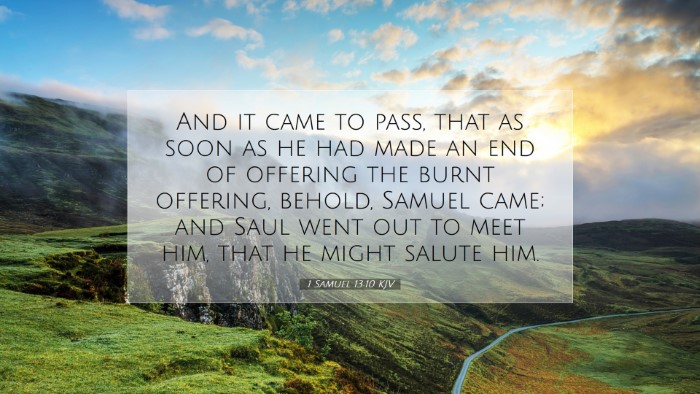Commentary on 1 Samuel 13:10
Bible Verse: "And it came to pass, that as soon as he had made an end of offering the burnt offering, behold, Samuel came; and Saul went out to meet him, that he might salute him." (1 Samuel 13:10)
Introduction
The text of 1 Samuel 13:10 represents a pivotal moment in the life of King Saul. This verse reflects a critical juncture where Saul's actions lead to significant consequences for his reign and Israel's future. Understanding this passage requires examining the context and the theological implications drawn from various commentaries.
Contextual Overview
Before diving into specific commentaries, it is essential to understand the backdrop of this verse. Saul, appointed as the first king of Israel, faced immediate challenges from the Philistines. The pressure of battle loomed, and Samuel the prophet had indicated he would arrive to offer sacrifice and seek God's guidance before the impending conflict.
Analysis of Saul’s Actions
Saul’s decision to perform a burnt offering in the absence of Samuel is crucial. According to existing public domain commentaries, this act represents disobedience to God’s command regarding the roles of the king and prophet. The following points are highlighted from the insights of Matthew Henry, Adam Clarke, and Albert Barnes:
- Matthew Henry: He emphasizes that Saul's impatience reveals a distrust in God's timing. Saul acted on his own authority rather than waiting for the appointed leader of worship, leading to a significant breach of protocol and divine order.
- Adam Clarke: Clarke discusses the implications of Saul's decision, noting that it indicates a reliance on ritual rather than true faith. This underscores a deeper spiritual issue and highlights the importance of obedience over sacrifice.
- Albert Barnes: Barnes focuses on the importance of the prophetic office in guiding the king. Saul’s premature action shows a lack of respect for Samuel as God’s chosen messenger and the role of waiting on God’s provision.
Theological Implications
From a theological standpoint, 1 Samuel 13:10 highlights key themes regarding leadership, obedience, and divine authority:
- Leadership and Responsibility: Saul’s position as king came with the responsibility to uphold God’s laws and rituals appropriate to the covenant community. His failure to do so reflects a broader theme of how leaders must seek God’s guidance.
- Divine Timing: The essence of waiting for God’s direction is woven throughout the narrative of Scripture. Saul’s inability to do so resulted in dire consequences, emphasizing the importance of trust in God’s perfect timing.
- The Role of the Prophet: Samuel represents God’s voice and guidance in Israel. By encroaching on Samuel’s role, Saul not only disobeys God but also undermines the prophetic authority meant to lead Israel in covenant faithfulness.
Consequences and Reflection
As we reflect on the broader implications of Saul’s actions, it is evident that every act of disobedience has ramifications. The subsequent verses reveal that Saul’s kingship would not endure as a result of this pivotal moment.
This teaches a profound lesson for all who seek to lead in the church or any God-ordained mission:
- Leaders must remain humble and conscious of their need for divine wisdom.
- Trusting in God's plan requires patience and an understanding of our roles within His divine order.
- Obedience to God's commands must take precedence over personal judgment or timing.
Conclusion
1 Samuel 13:10 serves as a reminder of the vital interplay between divine guidance, human authority, and the necessity for patience in faith. The insights drawn from Matthew Henry, Adam Clarke, and Albert Barnes provide a framework that enhances our understanding of this verse, offering both theological depth and practical application for pastors, scholars, and every believer.


